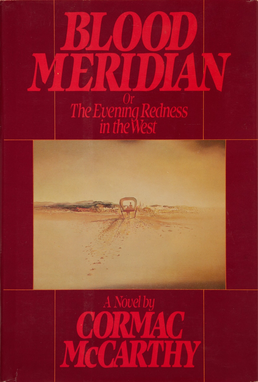Part 3
byPart 3 of Blood Meridian opens with the young boy alone in a desolate landscape, sitting beneath trees by a river, vulnerable and exposed to the harsh world around him. It is here that he encounters a mysterious rider, who is clothed in buckskin and seems to carry an aura of self-importance. The rider introduces himself as a recruiter for Captain White’s army, a man actively seeking new soldiers to fight against Mexicans despite the official end of the war. Initially, the boy feels indifferent to the offer, stating that he has no real interest in traveling to Mexico and lacks the experience needed for soldiering. But the recruiter’s persistence and promises of wealth, land, and a brighter future catch the boy’s attention. The recruiter claims that every soldier will receive a horse, ammunition, and the potential to become a large landowner, stirring something inside the boy.
The boy is hesitant, but the recruiter’s words resonate with him as they journey through barren streets, lined with dilapidated huts and signs of decay. The recruiter’s enthusiasm about destiny and opportunity begins to awaken a sense of hope in the boy, and despite his reluctance, he is drawn into the idea of a new life and the possibilities that await. As they reach the captain’s quarters, the boy is subjected to a brief interrogation, where he is asked about his background. He shares his painful experience of being robbed by a group of men—Mexicans, blacks, and whites—who left him with nothing but an old knife. The captain listens closely, then expresses his disdain for the Mexican people, describing them with contempt and predicting their downfall if the Americans do not intervene to prevent it.
The boy sits silently, absorbing the captain’s harsh words, realizing that the future of the country, as the captain sees it, lies in their hands. The recruiter reassures the boy, telling him that despite his lack of equipment, he will be provided with a horse and proper gear for the journey. As the preparations for the upcoming campaign begin, the boy becomes immersed in the new identity he is beginning to form among the other recruits, men who share stories of their past experiences and forge bonds of camaraderie. However, this camaraderie soon takes a darker turn when they arrive at a cantina. The mood shifts from excitement to something more sinister as the group indulges in alcohol and boasts about their violent pasts. The cheerful energy of the night quickly transforms into something much more violent, with a deadly confrontation occurring amidst the chaos. This event blurs the line between youthful exuberance and the ugly reality of the world they inhabit, leaving a lasting impression on the boy.
This chapter presents the boy’s internal conflict as he is pulled between the promises of adventure, wealth, and the brutal reality of the life he’s stepping into. The contrast between the recruiter’s idealistic rhetoric and the violent, unpredictable nature of the world around them is stark. The violence in the cantina, the boastful discussions of brutality, and the tragic death of a fellow reveler highlight the disconnect between the boy’s initial hopes and the reality of war and bloodshed. The boy’s decision to join the army marks the beginning of a journey that will irrevocably change him, leading him into a world where survival is uncertain, and where the allure of adventure is overshadowed by the horrors of violence. As he is exposed to the harshness of this new world, the boy will confront the moral dilemmas of power, dominance, and death, which will come to define his future. Through this narrative, the chapter underscores the fragile boundary between youth’s innocence and the brutalizing forces of conflict.

